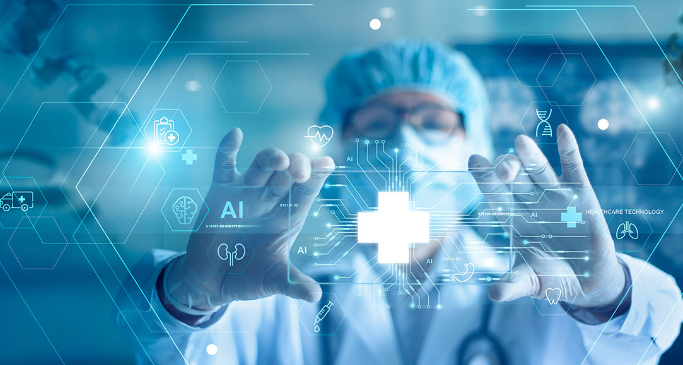AI in Medicine: Transforming Healthcare for the Better
Artificial Intelligence (AI) is rapidly changing various sectors, and healthcare is no exception. As technology advances, the integration of AI in medical practices has shown immense potential to enhance patient care, improve diagnosis accuracy, and streamline operations. Understanding how AI is impacting healthcare can reveal new opportunities for improved outcomes and efficiency.
The Role of AI in Diagnosis and Treatment
AI has the ability to analyze vast amounts of medical data at an unprecedented pace and accuracy. Machine learning algorithms can process and interpret medical images, such as X-rays and MRIs, often spotting conditions that human eyes might miss. For instance, AI tools are particularly effective in detecting early signs of cancers or neurological disorders, leading to faster and more accurate diagnoses. Additionally, personalized treatment plans can be crafted using AI by analyzing a patient’s unique genetic make-up, lifestyle, and preferences, making healthcare truly patient-centered.
Enhancing Patient Experience
AI is not just about diagnostic tools; it’s about creating a smoother healthcare journey. Chatbots and virtual health assistants are making significant strides in patient communication, allowing for appointment scheduling, medication reminders, and instant access to health information. This 24/7 availability can significantly reduce the burden on healthcare providers and ensure that patients get timely support. Furthermore, AI-driven predictive analytics help identify potential health risks before they develop, enabling proactive measures that improve overall patient well-being.
Streamlining Healthcare Operations
On the administrative side, AI is proving beneficial for enhancing operational efficiency within healthcare facilities. From optimizing scheduling and resource allocation to managing medical records, AI technologies help in reducing administrative workload and lowering costs. Predictive analytics can also forecast patient admission rates, ensuring that hospitals are adequately staffed and equipped. This leads to a more organized and responsive healthcare environment, benefiting both providers and patients.
In Conclusion
The implementation of AI in the medical field is more than just a trend; it’s a revolution that promises to improve how we approach health and wellness. As AI continues to evolve, it opens up new avenues for breakthroughs in diagnosis, treatment, and patient experience. To stay informed about this exciting journey in healthcare technology, consider exploring more resources or discussions about AI’s role in medicine. Embrace this change for a healthier future!

